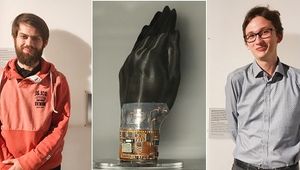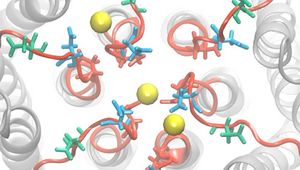Humans need calcium to survive; it is essential for strong bones and a healthy immune system.

Humans need calcium to survive; it is essential for strong bones and a healthy immune system. How do cells absorb this vital mineral? To understand this better, Assistant Professor Isabella Derler (Institute of Biophysics at the Johannes Kepler University Linz) has selected a new approach.
The biophysicist remarked: "Calcium absorption into the body's individual cells is essential to support numerous basic bodily functions, such as the immune response. Changes in one’s calcium balance can quickly result in illness." She and her research group aim to better understand the mechanisms that allow cells to absorb calcium. The scientists used light as a means to accurately control calcium entry points at the cell membrane (meaning the cell wall).
New Approach
Derler added: "Previously, one had to rely on optogenetics." This approach genetically modifies cells or proteins so that they respond to light. Derler and her team went one step further by not making whole proteins light-sensitive, but rather their individual components (amino acids). Not only does this provide more accurate protein studies, researchers can study each of its individual building blocks to determine its role.
The approach has proved successful: "At various points on a special calcium pore (the entry point where calcium enters the cell wall), we replaced the natural building blocks with light-sensitive amino acids, thereby demonstrating that some calcium channels actually respond promptly to light and either let more calcium into the cell or it will curb its supply."
This type of calcium influx control can also be used to accurately control subsequent cell processes, such as releasing transmitter substances during the course of an immune response.
Also Useful in Other Areas
The project's significance extends far beyond calcium research, however: "Our approach facilitates a more specialized study of ion channels on an almost atomic level and in living cells, providing new insight into how they perform their function," says Derler.
The study was recently published in the renowned journal, Nature Communications. Isabella Derler confidently added: "Our findings may open up new avenues to find new therapeutic methods that could combat illnesses associated with these types of calcium pore malfunctions."











